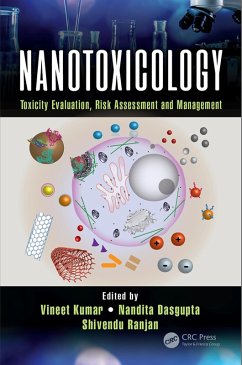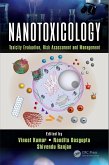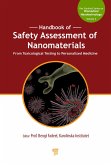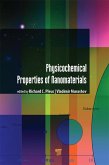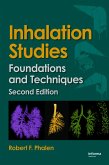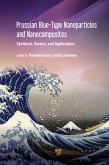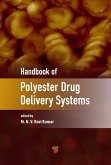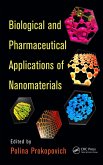As the application of nanotechnology in the myriad disciplines of science and engineering--from agriculture, pharmaceuticals, material science, and biotechnology to sensors, electronics, and mechanical and electrical engineering--brings benefits it also can produce serious threats to human health and the environment that must be evaluated.
The unique properties of nanomaterials make them different from their bulk counterparts. In addition to such unique properties, the nanometric size of nanomaterials can invite some detrimental effects on the health and well-being of living organisms and the environment. Thus, it is important to distinguish nanomaterials with such ill effects from nanomaterials with no or minimum toxicity.
Nanotoxicology: Toxicity Evaluation, Risk Assessment and Management covers issues such as the basic principles of nanotoxicity, methods used for nanotoxicity evaluation, risk assessment and its management for nanomaterial toxicity with a focus on current trends, limitations, challenges, and future directions of nanotoxicity evaluation.
Various experts from different countries discuss these issues in detail in this book. This will be helpful to researchers, educators, and students who are interested in research opportunities for avoiding the environmental and health hazards of nanomaterials. This book will also be useful for industrial practitioners, policy makers, and other professionals in the fields of toxicology, medicine, pharmacology, food, drugs, and other regulatory sciences.
The unique properties of nanomaterials make them different from their bulk counterparts. In addition to such unique properties, the nanometric size of nanomaterials can invite some detrimental effects on the health and well-being of living organisms and the environment. Thus, it is important to distinguish nanomaterials with such ill effects from nanomaterials with no or minimum toxicity.
Nanotoxicology: Toxicity Evaluation, Risk Assessment and Management covers issues such as the basic principles of nanotoxicity, methods used for nanotoxicity evaluation, risk assessment and its management for nanomaterial toxicity with a focus on current trends, limitations, challenges, and future directions of nanotoxicity evaluation.
Various experts from different countries discuss these issues in detail in this book. This will be helpful to researchers, educators, and students who are interested in research opportunities for avoiding the environmental and health hazards of nanomaterials. This book will also be useful for industrial practitioners, policy makers, and other professionals in the fields of toxicology, medicine, pharmacology, food, drugs, and other regulatory sciences.
Dieser Download kann aus rechtlichen Gründen nur mit Rechnungsadresse in A, B, BG, CY, CZ, D, DK, EW, E, FIN, F, GR, HR, H, IRL, I, LT, L, LR, M, NL, PL, P, R, S, SLO, SK ausgeliefert werden.

